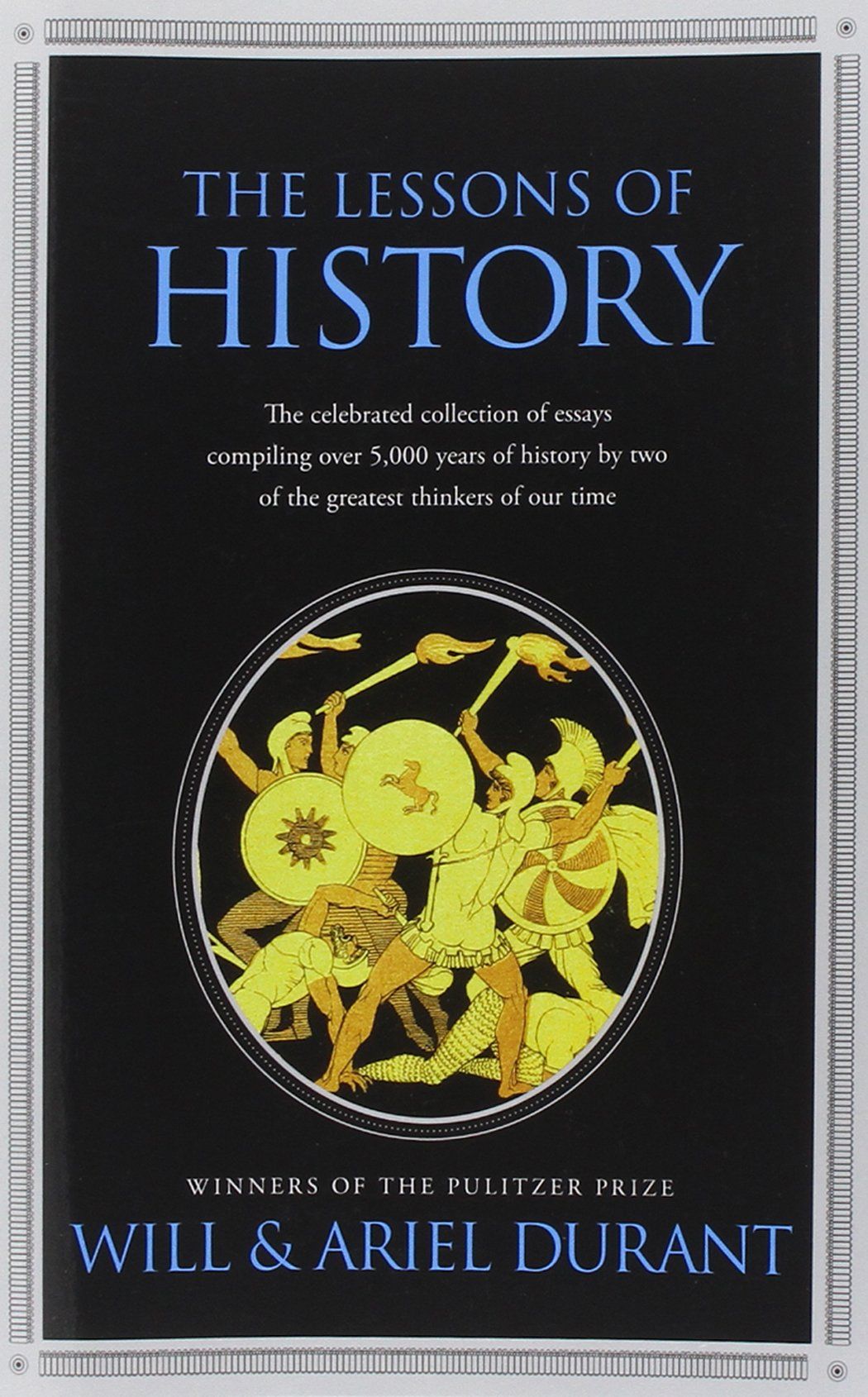
If most history is designed to zoom into the characters and events of a moment or trend in the historical record, The Lessons of History (published by Simon & Schuster) does just about the opposite.
A classic first published in 1968, the book is an act of pure reduction. The authors, Will & Ariel Durant, had previously spent decades compiling a multi-volume history of the world, and with this book, they created a summary of their life’s work in just about 100 pages organized around a couple of topical areas like war, government, and socialism. As the two write in a short introduction: “It is a precarious enterprise, and only a fool would try to compress a hundred centuries into a hundred pages of hazardous conclusions. We proceed.”

Proceed they do, and a reader’s enjoyment of this work is basically preordained — either you like the book’s conceit or you don’t. I’m probably more of the latter than the former, finding the book more interesting as a window into the worldview of 1960s academics than I found it illuminating about history.
Certainly some parts were fascinating. While the book covers a diverse array of topics, I found the coverage of economics and religion to be among its best. Take this line as an exemplar: “Puritanism and paganism — the repression and the expression of the senses and desires — alternate in mutual reaction in history. Generally religious and puritanism prevail in periods when the laws are feeble and morals must bear the burden of maintaining social order…” The litany of examples the authors cite become a reminder that what appears in our own lives at a particular moment has almost certainly come multiple times before.
Some of the authors’ conclusions are profound, but I also couldn’t help but feel that there is a sort of blur between “a lesson of history” and a truism. The rich work to protect their property from the expropriation by the poor. Is that a lesson of history, a truism, something else? One of the interesting notes is that while history may have certain standards arcs in the asymptote, what happens in a given day or year is anything but preordained. Peace can reign for years longer than anyone expected, and all can be lost in a blink of an eye. A review of the record centuries in the future may make it seem all obvious and formulaic, but we should never forget that the history is written in the moment every day.
There are many morsels of lessons worth thinking about in this book, but the true lesson it teaches is just how much framing matters to history itself as an enterprise.
The book is woefully Western-centric, which perhaps isn’t surprising given the authors background in Western classical antiquity through the modern era. In a world in which China dominates today’s headlines, you would be hard pressed to find more than a few paragraphs of any facet of Chinese or Eastern history included in the book’s evidence. Even the Middle East gets remarkably short thrift considering its role as progenitor for all that came after. Instead, the authors concentrate on the classic Greek/Roman/Middle Ages arc, and pull their conclusions from there.
Maybe the lessons emanating from Europe are universal. Or maybe, much like how psychology is dealing with a replication crisis over the dominance of WEIRD (“Western, educated, industrialized, rich and democratic”) participants in studies, these lessons of history may actually not be very universal at all when taking into account a greater sample range. This is the historian’s curse — the frame is always the most incredible single determinant for how we see history in the first place.
Ultimately, the book works as is — it’s certainly short enough to just enjoy in a quick read, and there is no doubt value in referring to its conclusions carefully. But we shouldn’t let these lessons of history be the only ones we are taught.
Image by Papageizichta via Wikimedia Commons used under Creative Commons.